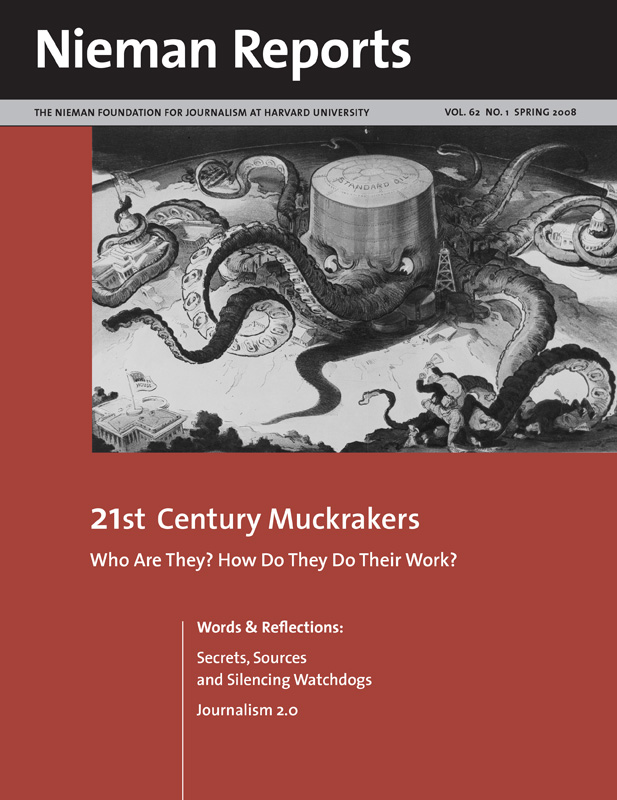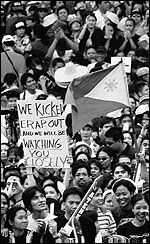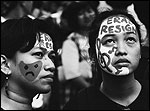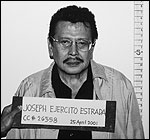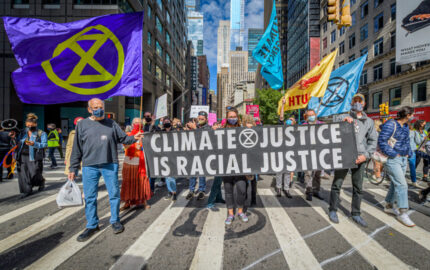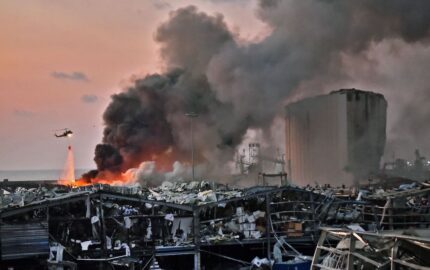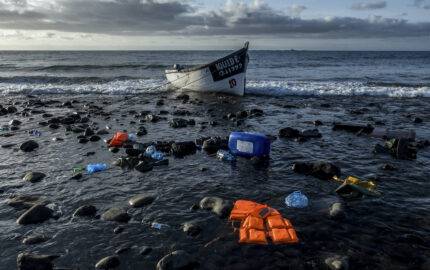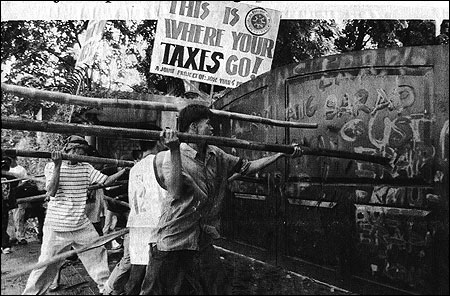
On the moonlit evening of February 25, 1986, I stood outside the massive, iron gates of the presidential palace in Manila. It was the third day of the uprising against the dictator Ferdinand Marcos, and thousands of Filipinos had gathered there, barred from entry by rows of barbed wire and armored vehicles. But as four helicopters lifted off from the palace grounds with the Marcos family, their entourage, and hurriedly packed possessions on board, the troops guarding the palace fled as well, and the crowd surged through the gates like a giant wave, forcing its way into Ferdinand’s study and Imelda’s boudoir.
RELATED ARTICLE
“Universities and Investigative Journalism”
– Charles Lewis I knew then that the 20-year rule of the Marcoses was over.
I was a neophyte journalist then, but already scarred from bruising battles with censors. Now, overnight, “people power” set the press free, and all the rules that had once held journalists in thrall were no longer in force. It was heady.
Looking back 22 years later, I realize that we were too distracted by the possibilities of the moment to see the perils that lay ahead. Transitions—whether from dictatorship to democracy, from socialism to a market economy, or old media to new—have not been known to be moments of clarity.
But they are moments ripe for breaking out of the mold. Many new ventures emerged in the Philippines during that period; some of them succeeded, many others failed. Our own experiment was born out of our frustration with the way the post-Marcos media system was evolving. We wanted a space where we would be freed from the restraints of the market and the state. We had not intended it, but the transition enabled us to create a prototype for watchdog journalism in an emerging democracy.
Finding a New Way
In the beginning, it hardly seemed necessary. For the most part, we felt like we had died and gone to media heaven. Suddenly there were dozens of new newspapers and radio and TV programs that gave voice to anyone who wanted to be heard. Deprived of information during the Marcos years, Filipinos were hungry for news and hard-hitting opinion. As in other places where authoritarian regimes have fallen, enterprising proprietors rushed to feed that hunger.
Soon, however, many of the newspapers died, casualties of a competitive and crowded market. The public affairs programs gave way to entertainment. Left alone, with little state or any other intervention, we saw the media system in the Philippines congealing to its default mode, becoming as oligarchic and as obsessed with profitmaking as it had been in the past. The only difference was that new owners had replaced some of the old ones, and the draconian restrictions were gone.
In their place was unbridled competition that through the years drove news coverage to lower and lower depths. In most of Manila’s newsrooms, reporters rushed from one assignment to another, filing three, sometimes even more, reports a day—a frantic pace of story chasing that did not allow for much reflection. We were missing out on crucial stories that required more time and resources for research and reporting.
In 1989, after having already unhappily walked out of a couple of newspapers, my colleagues and I—then mostly in our 20’s or 30’s—set up shop in an office borrowed from friends. We had a second-hand electric typewriter, an old computer, and a few desks and chairs we bought in a used-furniture sale.
Our digs were modest, but we gave our new venture a grand name: the Philippine Center for Investigative Journalism, PCIJ for short. It had a full-time staff of two: myself, unpaid but given the fancy title of executive director, and an office assistant. Our goal: to introduce investigative reporting to a media culture that put a premium on the sensational and superficial.
Freed from the need to attract a mass audience, avoid alienating advertisers, turn a profit—or, for that matter, to justify a salary—we focused instead on what we wanted to do. We would work on investigative stories and sell them to newspapers.
The first report I wrote for PCIJ was on banana plantations. I visited the workers, many of them prisoners, in the miserable barracks where they lived, no better off then than they had been in the past. Although touted as the beneficiaries of the government’s land reform program, all the workers got were nearly worthless shares of stock.
PCIJ’s initial stories were about places like these that had fallen off the news map and were rarely visited by journalists. We sent reporters across the islands to investigate logging and published a series linking the large-scale destruction of forests not only to natural disasters but also to the power of logging lords, many of whom had been elected to the freshly minted Congress.
Over the years, we built the most comprehensive database on Congress, showing the wealth of legislators, their relatives in public office, and the laws they sponsored. Later we posted the database online. We found that two of every three congressmen were members of families that had been in public office for two or more generations—raising fundamental questions about representative democracy in the Philippines.
As we ratcheted up the depth and breadth of our reporting, we saw the impact of muckraking: Several members of the Cabinet, a Supreme Court justice, and assorted bureaucrats resigned because of PCIJ’s exposés. Investigations had been initiated because of the wrongdoings we had uncovered.
In 2000, we began our most ambitious investigation: uncovering the wealth of the incumbent president, Joseph Estrada, a flamboyant and popular former movie star. He was a scandal waiting to happen. He had five wives. He was also a gambler with a taste for high-priced French wine. We heard he was deeply corrupt as well and so formed a team to ferret out his wealth.
In the course of a year, we uncovered the companies he and his wives had formed to set up businesses and found the dozen or so fabulous mansions he was building for them. We found he had acquired $40 million of real estate after just two years in office and unmasked the dummy companies that fronted for the purchases. We proved that there was no way Estrada could legitimately account for his acquisitions.
Not long after they were published, our articles were used as evidence in the president’s impeachment. When it looked like his trial was going to be compromised, thousands of Filipinos went out to the streets in protest, sparking off an uprising that ended with Estrada fleeing the presidential palace on a barge—not unlike Marcos’s flight I witnessed in 1986.
Advantages of Being Nonprofit
RELATED WEB LINK
Read “Investigating a President” to learn more details about this investigative project » Why did it take a small, independent newsroom to uncover a story of this magnitude? For many papers, this kind of reporting was simply too labor intensive. Press tycoons also feared the business repercussions of exposés on a popular president prickly about critical reporting.
The PCIJ’s edge is that it can dedicate its energies to investigations. Funded by foundations, it does not need to bow to market pressures or to please politicians and press proprietors. The center’s 14-person staff can take risks with projects that may not see publication in a year or even two. It can invest in projects like online databases that are not assured of revenues but provide a public service commercial news organizations will not offer. To do this, the center relies on an annual budget of $500,000—about of third of which is funded from proceeds of an endowment.
This has also meant that PCIJ can experiment with new reporting techniques; it introduced computer- assisted reporting to Philippine newsrooms, and its Web site was among the first to feature original multimedia reporting.
RELATED WEB LINK
"The Daily PCIJ" blogToday the PCIJ blog is the top political blog in the country. In 2005, it posted the full tape of wiretapped conversations between the current president, Gloria Arroyo, and an elections official in which they talked about rigging the vote. That tape set off the most serious crisis of the Arroyo presidency, and PCIJ was threatened with sedition and libel suits because of it.
As a small nonprofit, the PCIJ is vulnerable: It can lose its assets in a single lawsuit. Its long-term financial sustainability is uncertain. Then there’s staff burnout and the challenge to keep its best reporters from jumping ship. But PCIJ’s work proves there’s an audience for deeply reported stories. Through training courses and reporting fellowships, we have helped build a cadre of investigative reporters in newsrooms around the country. Today there are investigative teams in newspapers and TV networks, and investigative reporting is taught in schools. The center has also helped set up or train investigative units in other Asian countries.
Last year, I left PCIJ to take up the directorship of the Stabile Center for Investigative Journalism at Columbia University. The lessons from PCIJ that I have taken with me: Transitions are tricky, and media and social structures limit what we can do. But the period of flux and uncertainty provides opportunities for innovation that defies those structures. They are often best seized by people who aren’t constrained by current models or traditions. But the window they have is limited: The space for watchdog reporting must be created before new structures congeal.
Sheila S. Coronel is director of the Stabile Center for Investigative Journalism at the Graduate School of Journalism at Columbia University. She cofounded the Philippine Center for Investigative Journalism (PCIJ) in 1989 and is the author and editor of more than a dozen books, including “The Rulemakers: How the Wealthy and Well-Born Dominate Congress,” and “Pork and Other Perks: Corruption and Governance in the Philippines.”
